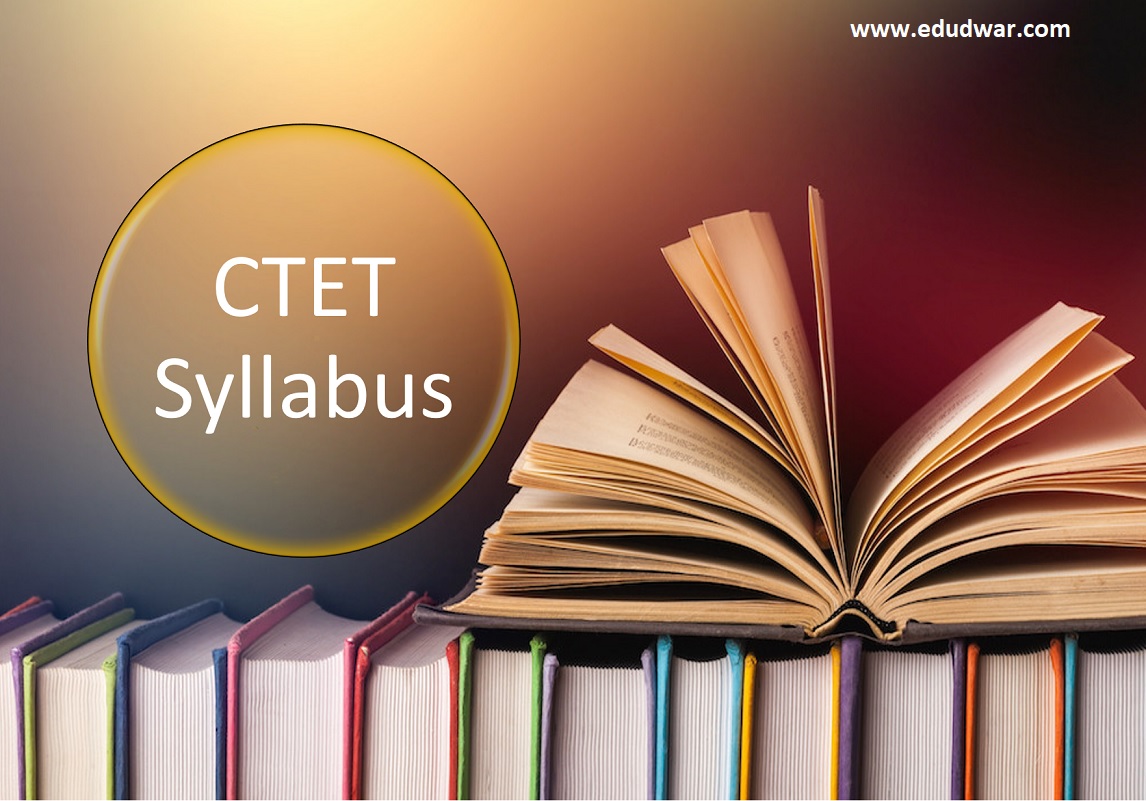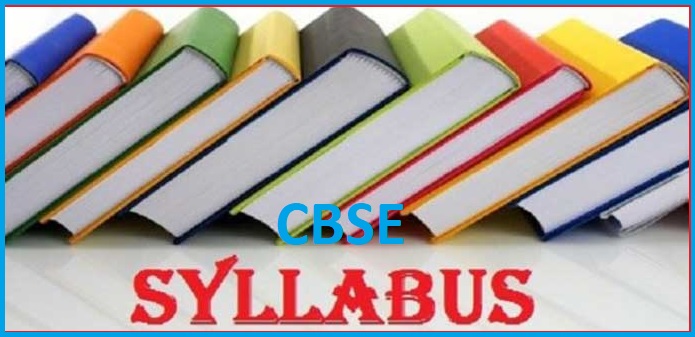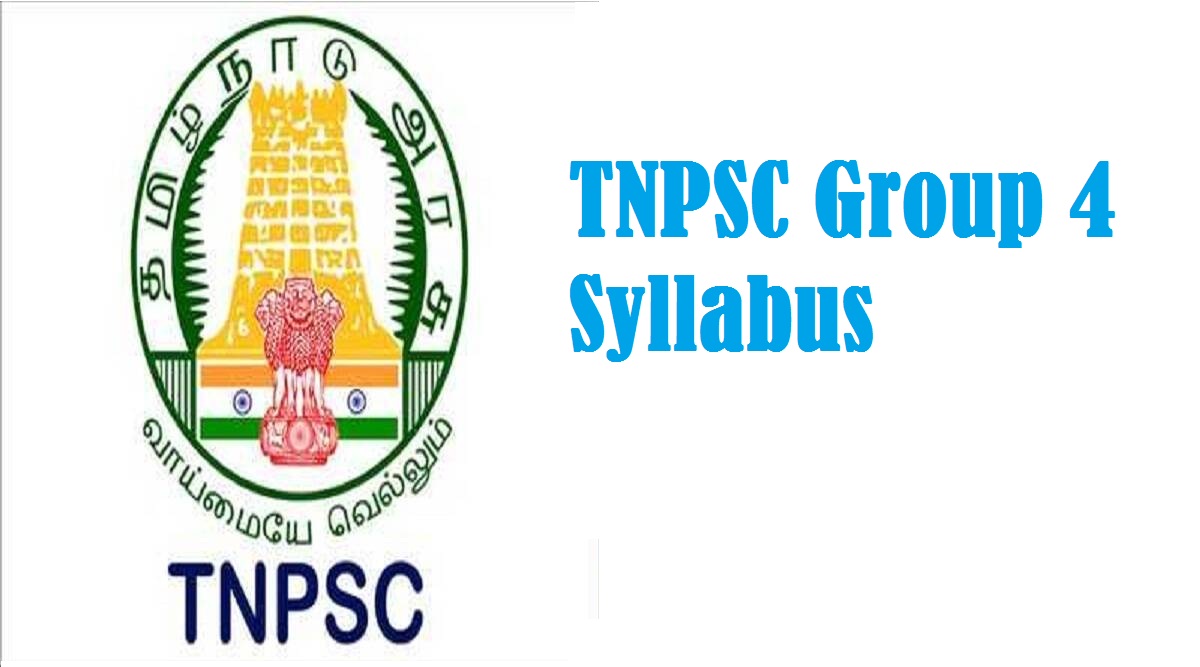CTET Syllabus 2023: Download CTET Syllabus PDF

CTET July 2023 exam is most likely to be held in July to August 2023 in CBT mode. The application form will be accepted till 26th May 2023. Check full CTET syllabus 2023 shared below.
Central Board of Secondary Education (CBSE) releases CTET 2023 syllabus. Central Teacher Eligibility Test (CTET) is conducted for providing eligibility certificate to aspirants who are willing to become teacher of class 1 to class 8 in government schools of India including KVS, NVS, Central Tibetan Schools, etc. Eligible candidates can apply for CTET 2023 in online mode after the announcement of its respective notification.
There are two papers in CTET 2023 exam- paper 1 is conducted for aspirants those are willing to become teacher of class 1 to 5, while paper II is conducted for class 6 to 8 teachers. All questions in CTET exam are multiple choice questions where each correct answer brings 1 mark. There is no negative marking in the exam.
CTET Syllabus 2023
| Exam Name | Central Teacher Eligibility Test |
| Renowned as | CTET 2023 |
| Mode of Application | Online |
| Number of Papers | Two: Paper 1 and Paper 2 |
| Type of questions | Multiple choice questions |
| Positive Marking | 1 mark for each correct answer |
| Negative marking | NO |
CTET Exam Pattern
You can understand CTET 2023 syllabus only when you review its exam pattern. Here is the summarized overview of CTET paper pattern:
Paper I Question Paper Format
| Subject | No. of MCQs | Marks |
| Child Development and Pedagogy (compulsory) | 30 Questions | 30 Marks |
| Language I (compulsory) | 30 Questions | 30 Marks |
| Language II (compulsory) | 30 Questions | 30 Marks |
| Mathematics | 30 Questions | 30 Marks |
| Environmental Studies | 30 Questions | 30 Marks |
| Total | 150 Questions | 150 Marks |
Here is the list of languages for CTET Paper I, you need to two languages out of them.
| Code Number | Language |
| 01 | English |
| 02 | Hindi |
| 03 | Assamese |
| 04 | Bengali |
| 05 | Garo |
| 06 | Gujarati |
| 07 | Kannada |
| 08 | Khasi |
| 09 | Malayalam |
| 10 | Manipuri |
| 11 | Marathi |
| 12 | Mizo |
| 13 | Nepali |
| 14 | Oriya |
| 15 | Punjabi |
| 16 | Sanskrit |
| 17 | Tamil |
| 18 | Telgu |
| 19 | Tibetan |
| 20 | Urdu |
Paper II Question Paper Format
| Subject | No. of MCQs | Marks |
| 1. Child Development & Pedagogy(compulsory) | 30 Questions | 30 Marks |
| 2. Language I (compulsory) | 30 Questions | 30 Marks |
| 3. Language II (compulsory) | 30 Questions | 30 Marks |
| 4. Mathematics and Science (for Mathematics and Science teacher) OR | 60 Questions | 60 Marks |
| 5. Social Studies/Social Science (for Social Studies/Social Science teacher) | 60 Questions | 60 Marks |
| For any other teacher – either (4) or (5) | ||
| Total | 150 MCQs | 150 Marks |
Here is the list of languages for CTET Paper II you need to two languages out of them.
| Code Number | Language |
| 01 | English |
| 02 | Hindi |
| 03 | Assamese |
| 04 | Bengali |
| 05 | Garo |
| 06 | Gujarati |
| 07 | Kannada |
| 08 | Khasi |
| 09 | Malayalam |
| 10 | Manipuri |
| 11 | Marathi |
| 12 | Mizo |
| 13 | Nepali |
| 14 | Oriya |
| 15 | Punjabi |
| 16 | Sanskrit |
| 17 | Tamil |
| 18 | Telgu |
| 19 | Tibetan |
| 20 | Urdu |
CTET 2023 Syllabus PDF Download
Here is CTET 2023 Syllabus for Paper I and Paper II:
CTET 2023 Paper I Syllabus
- Child Development and Pedagogy 30 Questions
- Child Development (Primary School Child) 15 Questions
- Concept of development and its relationship with learning
- Principles of the development of children
- Influence of Heredity & Environment
- Socialization processes: Social world & children (Teacher, Parents, Peers)
- Piaget, Kohlberg and Vygotsky: constructs and critical perspectives
- Concepts of child-centered and progressive education
- Critical perspective of the construct of Intelligence
- Multi-Dimensional Intelligence
- Language & Thought
- Gender as a social construct; gender roles, gender-bias and educational practice
- Individual differences among learners, understanding differences based on diversity of language, caste, gender, community, religion etc.
- Distinction between Assessment for learning and assessment of learning; School-Based Assessment, Continuous & Comprehensive Evaluation: perspective and practice
- Formulating appropriate questions for assessing readiness levels of learners; for enhancing learning and critical thinking in the classroom and for assessing learner achievement.
- Concept of Inclusive education and understanding children with special needs 5 Questions
- Addressing learners from diverse backgrounds including disadvantaged and deprived
- Addressing the needs of children with learning difficulties, „impairment‟ etc.
- Addressing the Talented, Creative, Specially abled Learners
- Learning and Pedagogy 10 Questions
- How children think and learn; how and why children „fail‟ to achieve success in school performance.
- Basic processes of teaching and learning; children‟s strategies of learning; learning as a social activity; social context of learning.
- Child as a problem solver and a„scientific investigator‟
- Alternative conceptions of learning in children, understanding children‟s „errors‟ as significant steps in the learning process.
- Cognition & Emotions
- Motivation and learning
- Factors contributing to learning – personal & environmental
- Language I 30 Questions
- Language Comprehension 15 Questions
- Child Development (Primary School Child) 15 Questions
Reading unseen passages – two passages one prose or drama and one poem with questions on comprehension, inference, grammar and verbal ability (Prose passage may be literary, scientific, narrative or discursive)
- Pedagogy of Language Development 15 Questions
- Learning and acquisition
- Principles of language Teaching
- Role of listening and speaking; function of language and how children use it as a tool
- Critical perspective on the role of grammar in learning a language for communicating ideas verbally and in written form
- Challenges of teaching language in a diverse classroom; language difficulties, errors and disorders
- Language Skills
- Evaluating language comprehension and proficiency: speaking, listening, reading and writing
- Teaching- learning materials: Textbook, multi-media materials, multilingual resource of the classroom Remedial Teaching
- Language – II 30 Questions
- Comprehension 15 Questions
Two unseen prose passages (discursive or literary or narrative or scientific) with question on comprehension, grammar and verbal ability
- Pedagogy of Language Development 15 Questions
- Learning and acquisition
- Principles of language Teaching
- Role of listening and speaking; function of language and how children use it as a tool
- Critical perspective on the role of grammar in learning a language for communicating ideas verbally and in written form;
- Challenges of teaching language in a diverse classroom; language difficulties, errors and disorders
- Language Skills
- Evaluating language comprehension and proficiency: speaking, listening, reading and writing
- Teaching – learning materials:Textbook, multi-media materials, multilingual resource of the classroom
- Remedial Teaching
- Mathematics 30 Questions
- Content 15 Questions
- Geometry
- Shapes & Spatial Understanding
- Solids around Us
- Numbers
- Addition and Subtraction
- Multiplication
- Division
- Measurement
- Weight
- Time
- Volume
- Data Handling
- Patterns
- Money
- Pedagogical issues 15 Questions
- Nature of Mathematics/Logical thinking; understanding children‟s thinking and reasoning patterns and strategies of making meaning and learning
- Place of Mathematics in Curriculum
- Language of Mathematics
- Community Mathematics
- Evaluation through formal and informal methods
- Problems of Teaching
- Error analysis and related aspects of learning and teaching
- Diagnostic and Remedial Teaching
- Environmental Studies 30 Questions
- Content 15 Questions
- Family and Friends: Relationships
- Content 15 Questions
Work and Play Animals
Plants
- Food
- Shelter
- Water
- Travel
- Things We Make and Do
- Pedagogical Issues 15 Questions
- Concept and scope of EVS
- Significance of EVS, integrated EVS
- Environmental Studies & Environmental Education
- Learning Principles
- Scope & relation to Science & Social Science
- Approaches of presenting concepts
- Activities
- Experimentation/Practical Work
- Discussion
- CCE
- Teaching material/Aids
- Problems
CTET 2023 Paper II Syllabus
- Child Development and Pedagogy 30 Questions
- Child Development (Elementary School Child) 15 Questions
- Concept of development and its relationship with learning
- Principles of the development of children
- Influence of Heredity & Environment
- Socialization processes: Social world & children (Teacher, Parents, Peers)
- Piaget, Kohlberg and Vygotsky: constructs and critical perspectives
- Concepts of child-centered and progressive education
- Critical perspective of the construct of Intelligence
- Multi-Dimensional Intelligence
- Language & Thought
- Gender as a social construct; gender roles, gender-bias and educational practice
- Individual differences among learners, understanding differences based on diversity of language, caste, gender, community, religion etc.
- Distinction between Assessment for learning and assessment of learning; School-Based Assessment, Continuous & Comprehensive Evaluation: perspective and practice
- Formulating appropriate questions for assessing readiness levels of learners; for enhancing learning and critical thinking in the classroom and for assessing learner achievement.
- Concept of Inclusive education and understanding children with special needs
- Child Development (Elementary School Child) 15 Questions
5 Questions
- Addressing learners from diverse backgrounds including disadvantaged and deprived
- Addressing the needs of children with learning difficulties, „impairment‟
- Addressing the Talented, Creative, Specially abled Learners
- Learning and Pedagogy 10 Questions
- How children think and learn; how and why children „fail‟ to achieve success in school
- Basic processes of teaching and learning; children‟s strategies of learning; learning as a social activity; social context of
- Child as a problem solver and a„scientific investigator‟
- Alternative conceptions of learning in children, understanding children‟s „errors‟ as significant steps in the learning
- Cognition & Emotions
- Motivation and learning
- Factors contributing to learning – personal & environmental
- Language I 30 Questions
- Language Comprehension 15 Questions
Reading unseen passages – two passages one prose or drama and one poem with questions on comprehension, inference, grammar and verbal ability (Prose passage may be literary, scientific, narrative or discursive)
- Pedagogy of Language Development 15 Questions
- Learning and acquisition
- Principles of language Teaching
- Role of listening and speaking; function of language and how children use
- it as a tool
- Critical perspective on the role of grammar in learning a language for communicating ideas verbally and in written form;
- Challenges of teaching language in a diverse classroom; language difficulties, errors and disorders
- Language Skills
- Evaluating language comprehension and proficiency: speaking, listening, reading and writing
- Teaching- learning materials: Textbook, multi-media materials, multilingual resource of the classroom
- Remedial Teaching
- Language-II 30 Questions
- Comprehension 15 Questions
Two unseen prose passages (discursive or literary or narrative or scientific) with question on comprehension, grammar and verbal ability
- Pedagogy of Language Development 15 Questions
- Learning and acquisition
- Principles of language Teaching
- Role of listening and speaking; function of language and how children use it as a tool
- Critical perspective on the role of grammar in learning a language for communicating ideas verbally and in written form;
- Challenges of teaching language in a diverse classroom; language difficulties, errors and disorders
- Language Skills
- Evaluating language comprehension and proficiency: speaking, listening, reading and writing
- Teaching – learning materials: Textbook, multi-media materials, multilingual resource of the classroom
- Remedial Teaching
| IV. Mathematics and Science (60 Questions) | ||
| Mathematics (30 Questions)
A) Content (20 Questions) |
| |
| Number System
· Knowing our Numbers · Playing with Numbers · Whole Numbers · Negative Numbers and Integers · Fractions | ||
| Algebra | ||
| · Introduction to Algebra
· Ration and Proportion Geometry | ||
| · Basic geometrical ideas (2-D)
· Understanding Elementary Shapes (2-D and 3-D) · Symmetry: (reflection) · Construction (using Straight edge Scale, protractor, compasses) · Mensuration · Data Handling |
- B) Pedagogical issues (10 questions)
- Nature of Mathematics/Logical thinking
- Place of Mathematics in Curriculum
- Language of Mathematics
- Community Mathematics
- Evaluation
- Remedial Teaching
- Problem of Teaching
Science (30 Questions)
- A) Content (20 Questions)
Food
- Sources of food
- Components of food
- Cleaning food
Materials
- Materials of daily use
The World of the Living
MovingThings People and Ideas
How things work
- Electric current and circuits
- Magnets
Natural Phenomena
Natural Resources
- B) Pedagogical issues (10 questions)
- Nature & Structure of Sciences
- Natural Science/Aims & objectives
- Understanding & Appreciating Science
- Approaches/Integrated Approach
- Observation/Experiment/Discovery (Method of Science)
- Innovation
- Text Material/Aids
- Evaluation – cognitive/psychomotor/affective
- Problems
- Remedial Teaching
- Social Studies/Social Sciences 60 Questions
- Content 40 Questions
- History
- When, Where and How
- The Earliest Societies
- The First Farmers and Herders
- The First Cities
- Early States
- New Ideas
- The First Empire
- Contacts with Distant lands
- Political Developments
- Culture and Science
- New Kings and Kingdoms
- Sultans of Delhi
- Architecture
- Creation of an Empire
- Social Change
- Regional Cultures
- The Establishment of Company Power
- Rural Life and Society
- Colonialism and Tribal Societies
- The Revolt of 1857-58
- Women and reform
- Challenging the Caste System
- The Nationalist Movement
- India After Independence
- Geography
- Geography as a social study and as a science
- Planet: Earth in the solar system
- Globe
- Environment in its totality: natural and human environment
- Air
- Water
- Human Environment: settlement, transport and communication
- Resources:Types-Natural and Human
- Agriculture
- Social and Political Life
- Diversity
- Government
- Local Government
- Making a Living
- Democracy
- State Government
- Understanding Media
- Unpacking Gender
- The Constitution
- Parliamentary Government
- The Judiciary
- Social Justice and the Marginalised
- History
- Content 40 Questions
- Pedagogical issues 20 Questions
- Concept & Nature of Social Science/Social Studies
- Class Room Processes, activities and discourse
- Developing Critical thinking
- Enquiry/Empirical Evidence
- Problems of teaching Social Science/Social Studies
- Sources – Primary & Secondary
- Projects Work
- Evaluation
For more details of CTET syllabus we request students to refer CTET information brochure, NCERT syllabus, and textbooks.
If you have any query related to CTET 2023 syllabus then share the same through the comment box below.




